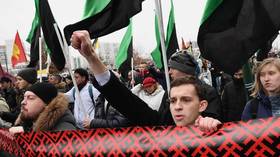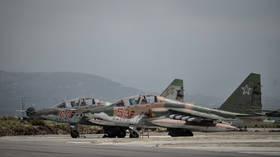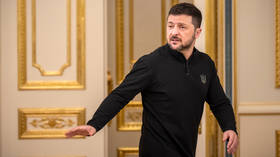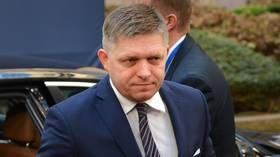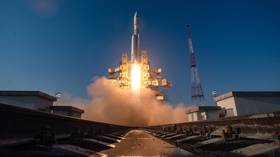Russian lawmakers mull new political protest rules: Foreign funding to be banned & activists blocked from posing as journalists
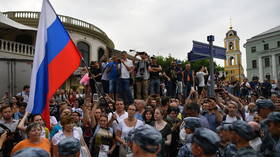
In what may be a controversial move, a leading Russian politician has proposed two new Bills to parliament, which, If passed, would introduce tighter controls on those organising and funding political gatherings in the country.
The measures would amend the law “On Meetings, Rallies, Demonstrations, Processions and Picketing,” banning activists from staging protests outside government departments and limiting them to certain areas.
Introduced by parliamentarian Dmitry Vyatkin of the governing United Russia party, the new approach to political activity is intended to “create the conditions needed for the emergency services to perform their functions unimpeded.” A second Bill bans organisers from taking funds from foreign governments and donors, as well as requiring them to submit a report on how much they spent on each event.
Also on rt.com Ex-Russian presidents could become senators for life after leaving Kremlin, as Putin submits draft law to parliamentAt the start of November, police were called to Moscow’s Lubyanka Square after a half-naked activist tied himself to a burning cross in a dramatic mock-crucifixtion. Pavel Krisevich, who was arrested at the scene, was taken to hospital after becoming injured as authorities broke up the stunt. Lubyanka Square is home to Russia’s top domestic security service, the FSB, and Krisevich’s gesture was purportedly a criticism of arrests made by the agency.
If passed, the new restrictions would also bar journalists covering these events from waving posters or banners, collecting signatures, or hiding the fact they are there to report on proceedings. Media workers, particularly from small, politically-focused organizations have previously been accused of crossing the line into participating in protests, rather than just observing them. Earlier this month, Olga Sapronova, a blogger for online opposition channel Gradus TV was arrested at the far-right ‘Russia March’ in Moscow.
Russia’s colorful history of political demonstrations made international headlines in 2014 after so-called performance artist Petr Pavlensky nailed his scrotum to the floor of Moscow’s Red Square. His actions were supposedly “a metaphor for the apathy, political indifference and fatalism of modern Russian society.” A psychological analysis was apparently mandated by police after his arrest.
Think your friends would be interested? Share this story!
